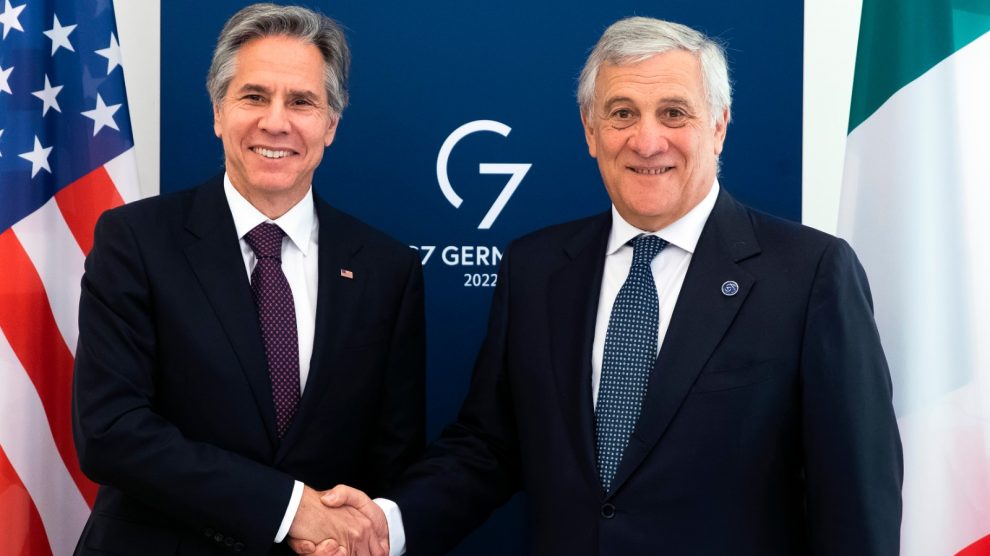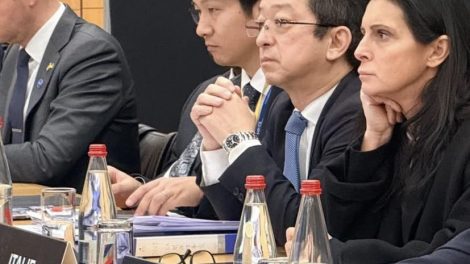Italy and the US engage on digital threats. Late on Wednesday, Italian Foreign Minister Antonio Tajani and United States Secretary of State Antony Blinken had a bilateral meeting in Capri, where G-7 foreign ministers convened to discuss foreign affairs. Cybersecurity, artificial intelligence and the fight against disinformation feature prominently on their agenda alongside the Middle Eastern and Ukrainian crises, and looming elections on both sides of the Atlantic are boosting the matter’s urgency.
- The context for their meeting was what Secretary Blinken called the “closest partnership we’ve ever had between the United States and Italy where we’re working together on all of the most critical issues of our time.”
- On his side, FM Tajani called the Transatlantic relationship “the North Star of our foreign policy” alongside that with the European Union. “We are defending the founding principles of the G-7, NATO, and the transatlantic relationship,” he stressed.
Time to join forces. The bilateral’s main deliverable came in the form of a new Italy-US memorandum of understanding against disinformation. The document, remarked the US Secretary of State, “goes to one of the critical challenges that our countries and other democracies are facing, which is the increasing use of misinformation and disinformation to try to destabilise our democracies.”
- “There are non-democratic countries that use fake news to create confusion within democratic countries [and] influence elections,” said the Italian FM. “We do not want any conditioning of our citizens through fake news, using social media or even AI, to influence their vote.”
In practice: Rome and Washington will share intelligence and coordinate efforts to counter foreign powers’ attempts to undermine electoral integrity and public trust. The partners are committed to sharing “analytical methods and techniques” and focusing on commonly understood and interoperable lexicons to tackle the international spread of false narratives, counter the “malicious influence” of rivals such as Russia and China, and help one another in case of need.
- Their counter-actions will likely zero in on the main digital distribution channels (social media like Telegram and TikTok) and work to contrast State propaganda, manipulated messaging and AI deepfakes geared at influencing voters’ behaviour.
Disinfo is rampant. Over the past months, Moscow has been ramping up information operations across Europe and Italy. The most recent examples include intelligence officials uncovering a Russian plot to link the farmers’ protests with sanctions on Russia, as well as multi-language bot swarms blaming Ukraine for the terrorist attack at the Crocus City Hall. That’s on top of long-standing and ongoing operations to disseminate authentic-looking fabricated articles (the Doppelganger network being one example) and more traditional influence operations to sway politicians, both in the EU and in the US.
- Beijing is no stranger to such influence operations: most recently, an investigation uncovered a sprawling network of global pro-China “news” websites.
- Governments fear that emerging technologies like generative AI might amplify these operations’ reach, although it doesn’t look like the risk has increased significantly – for now.





